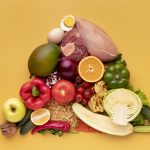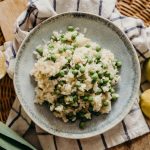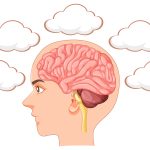Prevent cataracts, glaucoma, and other eye health problems with easy, natural solutions
As we get older, our eyes undergo changes, just like the rest of our body. Some eye health problems develop due to ageing, while others stem from environmental factors, genetics, or lifestyle habits.
Quick Read:
- Your eyes work hard from the moment you open them in the morning; don’t take them for granted!
- You can manage your eye health by taking better care of your overall wellbeing.
- A good diet is as important for your eyes as it is for your body.
What causes eye health problems?
Why do your eyes fail? Like other organs in your body, your eyes work hard and as you age, there’s understandable wear and tear. Much like a car that needs constant maintenance to run smoothly.
One of the problems is that your eyes need to stay lubricated but as you get older, this becomes more difficult, leading to irritation, or a “gritty” feeling in your eyes. The bits and pieces that make up the eye – the lens and cornea amongst others – become less elastic and start losing their abilities to focus.
Blurry vision
Symptoms of blurry vision include difficulty focusing on near or distant objects, constant need to squint, and frequent headaches. This problem is typically caused by nearsightedness, farsightedness, astigmatism, eye strain from focusing on screens all day, or even a Vitamin B12 deficiency.
Solutions: Go for regular eye exams and wear corrective glasses or contact lenses, if necessary. Do your best to take breaks from your screens and use the 20-20-20 rule (every 20 minutes, look at something 20 feet away for 20 seconds). Eat more Vitamin B12-rich foods like fish, eggs, and fortified cereals.
Cataracts
Symptoms vary from cloudy or blurred vision, to sensitivity to bright and glaring lights. You may also “see” a faded or yellowish tint around things. Cataracts are down to ageing, lack of antioxidants in your diet, and UV exposure.
Solutions: Wear sunglasses with UV protection and try to improve your diet by eating more antioxidant-rich foods like citrus fruits, nuts, and leafy greens. You might need to consider cataract surgery if your vision becomes severely impaired.
Glaucoma
Common symptoms include intense eye pain, slowly losing peripheral vision, nausea and vomiting (for some), and seeing “rings” around lights. Glaucoma occurs when the optic nerve becomes damaged.
Solutions: Go for regular eye check-ups to monitor eye pressure. Try to maintain a healthy weight and exercise regularly. Eat magnesium-rich foods like bananas, nuts, and dark chocolate.

Eye strain
Symptoms include tired eyes, dry eyes, difficulty focusing, headaches, and neck pain. Eye strain is typically due to spending long hours in front of computer or phone screens, and not having the correct screen brightness.
Solutions: This is an easy enough fix. Follow the 20-20-20 rule mentioned above and adjust your screen brightness to find a good comfort level. Also, get advice about anti-glare filters or blue light glasses.
Macular degeneration
Macular degeneration is an eye disease that makes it hard to see things straight ahead. It mainly affects your central vision and is most common in people over 50. It’s mostly caused by ageing, but smoking and a poor diet that’s lacking in certain nutrients are also risk factors.
Solutions: Quit smoking to lower your risk of this eye health problem. For food helpers, eat lutein and zeaxanthin-rich foods like spinach, sweetcorn, and peas. Also consider more Omega-3s from fish or flaxseeds, or in supplement form.
Help at hand
Go to the doctor if you experience changes in colour on any part of your eyes, blurred vision even when something is close by, difficulty focusing on near or distant objects, or eye pain. Seeing dots and spots, eye infections, and headaches from bright lights, are also worth chatting to a doctor about.
Many eye health problems are natural effects of ageing, but your diet can also impact your eye health. Add more vitamin-rich foods to your diet, including spinach, broccoli, green peas, tangerines, and sweetcorn. Vitamin C is also a good eye helper, and it’s easy to find in oranges, tomatoes, naartjies and other citrus fruits.
Stock up on Vitamin E-rich foods, too. These include sweet potatoes, vegetable oils and nuts. Zinc is also said to have good benefits for eye health. You can take a supplement but also get your fill of red meat, nuts, seeds, and shellfish. Zinc is important as it carries Vitamin A from the liver to the retina. A Vitamin B12 deficiency could also be to blame for eyesight problems, mainly blurry vision. Get checked out at the doctor and add fortified cereals, fish, salmon, and eggs to your diet.
Images: Freepik

















